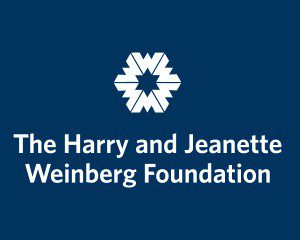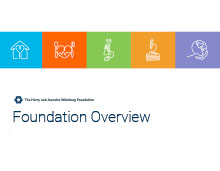Two of the Foundation’s recent Hawai’i grants highlight the importance of philanthropy in providing private dollars that pave the way for government-funded sustained health initiatives.
 A $50,000 grant to support Hawai’i Community Foundation’s Student Health and Wellness Fund will provide the private matching funds necessary to leverage the Children’s Health Insurance Program (CHIP), a sustainable federal funding stream that provides health coverage for children in low-income families. In Hawai’i, CHIP will fund vision screenings, eye exams, and glasses for youth living in low-income and rural communities.
A $50,000 grant to support Hawai’i Community Foundation’s Student Health and Wellness Fund will provide the private matching funds necessary to leverage the Children’s Health Insurance Program (CHIP), a sustainable federal funding stream that provides health coverage for children in low-income families. In Hawai’i, CHIP will fund vision screenings, eye exams, and glasses for youth living in low-income and rural communities.
This one-time grant will support the state in drawing down $443,432 in federal funding, which will cover the costs of programming incurred by Project Vision Hawai’i and Vision to Learn, two grantees partnering to provide eyecare statewide. This opportunity to scale and sustain is thanks to a collaborative funding effort with government and private funders, including the Harold K.L. Castle Foundation, Zilber Family Foundation, Kamehameha Schools, Atherton Foundation, and others. The state has committed to providing the funding match over the coming years. This funding model and collaborative effort creates a pathway for more youth-focused health initiatives in the future.
 Additionally, through a $50,000 grant, the Foundation has partnered with Hawai’i Appleseed Center for Law & Economic Justice to evaluate a pathway to sustainably fund a “food as medicine” model in Hawai’i, including produce prescriptions, medically tailored meals, nutrition counseling, and applied nutrition education. This partnership will determine new opportunities to increase federal funding for healthy food access throughout Hawai’i’s rural communities.
Additionally, through a $50,000 grant, the Foundation has partnered with Hawai’i Appleseed Center for Law & Economic Justice to evaluate a pathway to sustainably fund a “food as medicine” model in Hawai’i, including produce prescriptions, medically tailored meals, nutrition counseling, and applied nutrition education. This partnership will determine new opportunities to increase federal funding for healthy food access throughout Hawai’i’s rural communities.
To date, the connection of food systems with health care through medically supportive food and nutrition—also known as “food as medicine”—has shown positive impacts on individual health, but the practice remains exclusively privately funded. Without public funding to cover the costs associated with the “food as medicine” model, the programming will not be sustainable. This partnership will help community health centers and families access a new federal funding stream, resulting in increased access to healthy, locally grown food over time.




